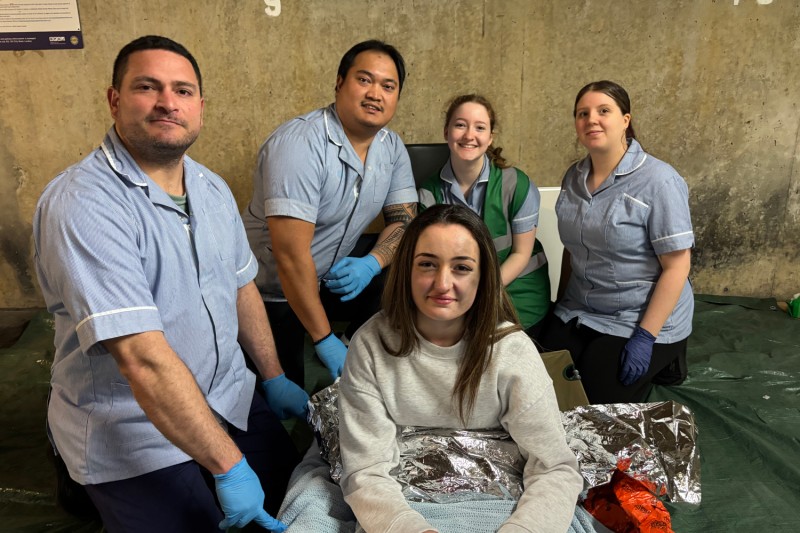Course fees
£1,050.00
For fees and funding info please refer to the FAQs
11 Nov 2025 (Intake closed)
Apply by: 14 Oct 2025
Nov 2025
Online
Attendance dates: 11 Nov 2025, 18 Nov 2025, 25 Nov 2025, 02 Dec 2025, 09 Dec 2025
24 Apr 2026 (Available)
Apply by: 13 Mar 2026
April 2026
Pre booked spaces only | Online
Attendance dates: 24 Apr 2026, 01 May 2026, 08 May 2026, 15 May 2026, 22 May 2026
26 May 2026 (Available)
Apply by: 14 Apr 2026
May 2026
Online
Attendance dates: 26 May 2026, 02 Jun 2026, 09 Jun 2026, 16 Jun 2026, 23 Jun 2026
Accredited by




Course overview
In this Master's level unit, you will explore and evaluate a range of models and approaches to public involvement in research from shaping your research idea and through each stage of the research cycle. You will identify a strategy for public involvement (what, why and how) that will best fit your research study allowing you to gain an appreciation of how collaborating with people with lived experience (public, patients, carers, service users and potential users) can enhance your research. In this unit, you will explore and evaluate a range of models and approaches to public involvement in research with members of the BU PIER (Public Involvement in Education and Research) Partnership. Specific emphasis will be placed on strategies for engaging and collaborating with marginalised groups so as not to reinforce social and health inequalities and inequities.
This course requires 100% attendance.
Learning outcomes
- Explore and critically evaluate different models and approaches to public involvement in research
- Design a strategy that would best fit their own research, project or public involvement role, including what, why and how it will be conducted and evaluated
- Plan and conduct at least one session engagement activity with people with lived experience/patients/members of the public
- Critically reflect on own research or practice based on feedback from people with lived experience/patients/members of the public
- Consider inclusive methods and tools for involving groups currently under-served by research
- Develop resources suitable for a wide audience
Assessment
The unit coursework comprises of a conference poster with Q&A addressing each of the intended learning outcomes (please see below).
Course details
Course leader
Mel Hughes (mhughes@bournemouth.ac.uk)
Course delivery
Online session 10am-1pm and self managed study from 2-5pm
Prerequisites
This unit is for Health and Social Care professionals.
Normally students may enter Level 7 (Master's level) study if they have been awarded:
- A Bachelors Honours degree with 2:2
- An equivalent qualification (the learning outcome of which are demonstrably appropriate in terms of knowledge, understanding and skills) equivalent to 120 credits at Level 6.
- Experience of related clinical work/study/research is usually required. Health professionals with non-traditional academic backgrounds will also be considered
Why Choose BU?
Bournemouth Gateway Building is the home of the Faculty of Health and Social Sciences. Its 10,000 square metres of space has created a unified base for the faculty’s education, research and office activities, which previously took place across several buildings in the Lansdowne area. It is open and accessible to all BU students, staff and the community.
We have a long and close association with health and social care practice partners across the region and enjoy close relationships with Dorset Healthcare University Foundation Trust, University Hospitals Dorset and District Hospitals (Yeovil and Salisbury) and Dorset County Hospital.
We are an established, vibrant and supportive academic community of staff, clinical practitioners, students and service users. Our team of highly qualified nursing staff and social scientists are committed to developing the next generation of outstanding, skilled and compassionate practitioners, having been engaged in developing the nursing workforce for over 25 years.


Make an enquiry
Make an enquiry
